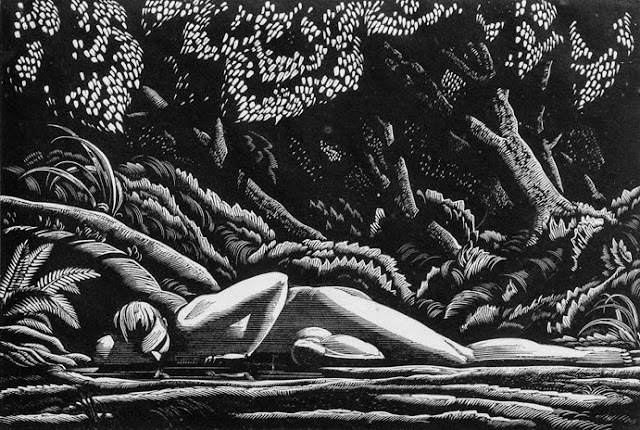 |
Avonia quinaria alstonii
1-inch pot
July 31, 2012
|
Saturday, April 18, 2015
Saturday, April 4, 2015
Wood Engravings by Rockwell Kent
 |
Twilight of Man (1926)
Rockwell Kent
Wood Engraving
5 1/2 x 8 inches
|
 |
Forest Pool (1927)
Rockwell Kent
Wood Engraving
5 1/2 x 8 inches
|
The Captain by Russell Thacher
 |
| New York : Macmillan, 1951 Dustjacket: John O'Hara Cosgrove II |
In the middle of preparing for this assault on the Japanese, he must also deal with a number of issues among his crew. From the near mutinous behavior of his engine crew to an African-American steward, Buck, whose skills are better used on deck with artillery, but isn't accepted by the other men due to his race.
Central to the story is an ongoing relationship between Gunnery Officer, Gilchrist, who after receiving a dear john letter develops a close relationship with Espisito, the Bosun's Mate. The relationship is already a challenge due to the difference in rank, but is doubly problematic for the captain since it becomes a topic of gossip among everyone on board. Stories of reciting poetry (Whitman) and spending time together in dark corners of the ship make it impossible for the Captain to ignore.
The Captain was well received when it was published in 1951. It's fascinating that the gay storyline is present throughout the book but is summarily ignored by reviewers of the time.
Bibliographies & Ratings: Cory (III); Garde (OTP, a, **); Mattachine Review (III); Young (3768)
Subscribe to:
Posts (Atom)